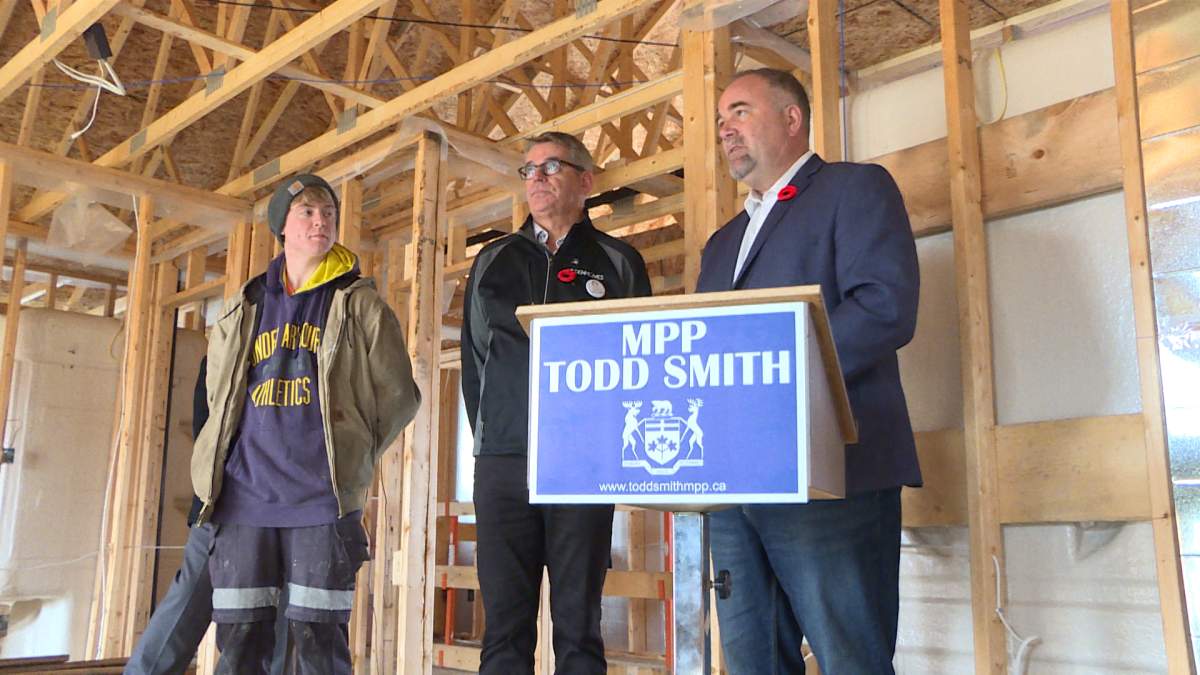Statistics Canada’s Labour Force Survey for January shows Ontario led overall employment increases across the country.

According to the survey, the province added 41,400 jobs last month as a result of an increase in full-time work. The survey added, however, that more people looked for work in the province, pushing the unemployment rate up to 5.7 per cent.
Minister of Economic Development, Job Creation and Trade Todd Smith said the report is evidence that “our government is putting Ontario back on track.”
Smith also said the Ontario government is moving the province toward an “open for business” mentality, a slogan used numerous times during Premier Doug Ford’s election campaign and administration.
“We are working hard to make Ontario the best place for businesses to thrive, grow and create good jobs. We are committed to working with job creators to ensure that we have a competitive business landscape that protects workers and creates jobs,” Smith said.
Pam Frache, co-ordinator of the activist group Fight for $15 and Fairness, used the numbers to frame the debate around increasing the province’s minimum wage, saying: “The strong job numbers confirm what we have been saying all along. Contrary to the outrageous and — as we now know, definitively — false claims from big business lobby groups, raising the minimum wage is good for workers and the economy.”

Get daily National news
“If Premier Doug Ford and Minister Todd Smith want a thriving economy, they should listen to the people and the evidence, not corporate lobby groups. And that means implementing a $15 minimum wage now, not waiting until 2025,” Frache also told Global News.
The NDP points to findings in the survey that show youth unemployment is up in Ontario.
“Young people in Ontario deserve opportunities to find the stable jobs and meaningful careers that will launch them into a successful adulthood and enable affordable lives,” said NDP employment critic Catherine Fife.
Fife also raised concerns about affordability in the province for young people.
“Doug Ford is making things worse for young people, going after low- and middle-income post-secondary students by cutting grants and making it tougher to access loan support,” she added.
Last month, the government announced it was cancelling a six-month, interest-free grace period for post-secondary students after graduating.
“Ford is forcing young people to take on even more crippling debt loads,” Fife said.
Mitzie Hunter, finance critic for the Ontario Liberal Party, also criticized the government for its education policies.
“Ford inherited a strong economy but isn’t taking steps to continue it,” the Scarborough-Guildwood MPP said Friday.
Hunter warns that future employment could be stalled by cuts to education.
“At a time when there is a potential slowing of the economy, investments in education is one of our best investments,” Hunter said. “The Ford government is making drastic cuts to education by cutting tuition fees, which give the most benefit to the wealthy. They are reducing financial aid for low- and middle-income students.”
Green Party of Ontario Leader Mike Schreiner told Global News he is pleased that job numbers are up in Ontario but added: “I don’t see how the premier can claim that reducing red tape led to the job increases when the red tape reduction bill has not passed.”
Schreiner is referring to Bill 66, a proposed piece of provincial legislation that the government has named the Restoring Ontario’s Competitiveness Act. Ford has said the bill will reduce red tape by cutting unnecessary regulations.
“If the premier wants to claim credit for January’s job numbers, will he also take responsibility for other employment trends such as the FAO report from earlier this month raising the alarm about stagnating incomes and rising inequality across Ontario?” the Green Party leader added.
While Ontario and five other provinces — including Quebec — added jobs, other provinces saw employment decline in January, including Alberta and Saskatchewan.








Comments
Want to discuss? Please read our Commenting Policy first.